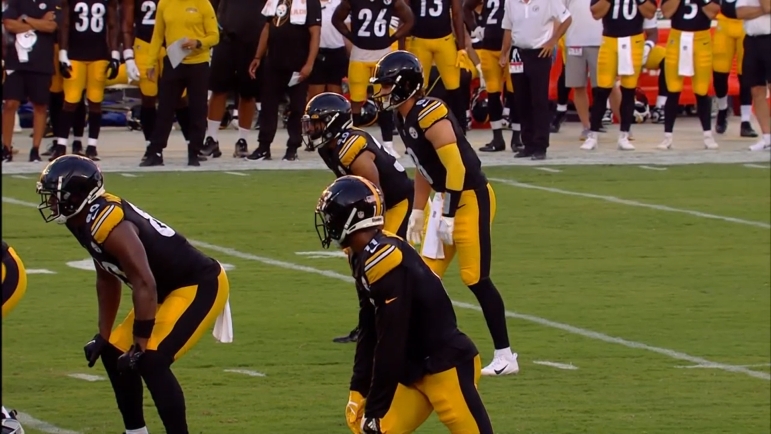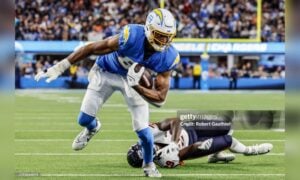It’s odd to talk about a trade acquisition for a player paying off before he’s even played a meaningful snap. Still, the Pittsburgh Steelers’ addition of WR Allen Robinson II has felt strictly positive since he was brought in. In fact, they may have even gotten a two-for-one deal by bringing him in: not just a wide receiver but also a coach—a coordinator.
“AR’s gonna control the middle because he’s smart, a vet guy, so he knows the game, he’s seen certain coverages”, WR Diontae Johnson told Kevin Adams and Jersey Jerry on the Steel Here podcast earlier this week. “When he comes back to the sideline, he’s telling us certain plays we could call and we’re just feeding off each other, feeding each other information on what we’ve seen and feeding it back to the OC”.
This is not the first time by any stretch of the imagination that we have heard from a new teammate of Robinson’s describe his football intelligence. We have heard stories about him recalling a play that he ran when he was with the Chicago Bears, for example, that they could incorporate based on what they were running.
But this is the first notable comment that actually corresponds to an in-game circumstance, coming after the preseason, against an actual defense. Yes, they may have been vanilla defenses, but they weren’t Steelers defenses, teammates who know everybody very well.
Offensive coordinator Matt Canada is not exactly the most popular member of the organization to start out with, but any coordinator can benefit from the insights of intelligent veterans who have the on-field view. Usually that’s the quarterback, but it can come from anybody, including a 10th-year veteran receiver like Robinson.
Does that mean that Canada is going to start calling Robinson’s plays like some kind of subcontracting service? No, of course not. But perhaps he could have some degree of influence in how Canada adjusts his play-calling based on what his players are experiencing during the game.
I’m sure any good coordinator would tell you that he listens to what his players are telling him about what they see when they are on the field and then use that information accordingly. Perhaps they don’t always run the plays that are suggested to them, but if you trust the intelligence of your players, you might as well pay attention to what they have to say.








